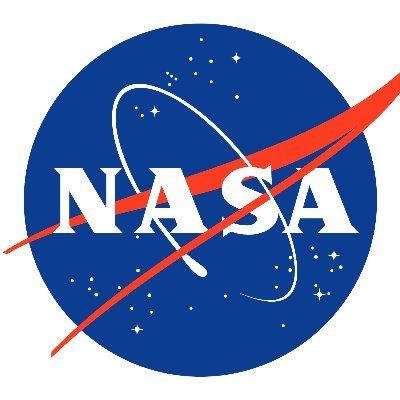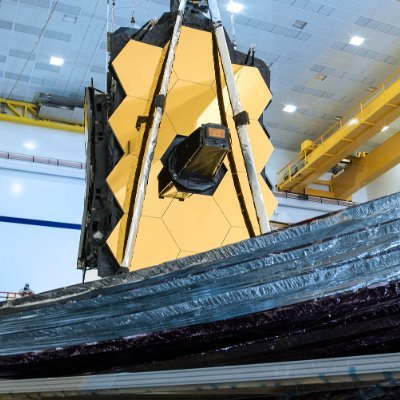
Dale Kocevski
@DaleKocevski
Followers
276
Following
612
Media
20
Statuses
138
Astrophysicist studying how black holes and galaxies grow and evolve. Associate Professor at Colby College.
Waterville, Maine
Joined August 2012
Super excited that our recent paper on Little Red Dots was discussed on All Things Considered. The write-up by @nell_sci_NPR is really great. https://t.co/4AQgE54akD
npr.org
A cosmic object spotted by the James Webb Space Telescope has flummoxed astronomers. Now, a research team has studied hundreds of these "little red dots" and found clues about their identity.
0
0
2
Well, this is pretty dang cool, from @Jeopardy last night, featuring our @ceers_jwst discovery!
0
6
41
I was wondering about the colors of the #aurora. I saw this unattributed image floating around and a post from @Astropartigirl claiming it has to do with the concentration of oxygen. But that didn't make sense to me. A short thread 1/N [attribution for in image description]
17
211
1K
From Nathalie Korhonen Cuestas: Lurking behind a thick red blanket of gas, supermassive black holes are rapidly growing in very compact galaxies known as Little Red Dots, and they may hold some of the secrets of galaxy evolution. 🔭✨️ https://t.co/1QpRX9S7nL
astrobites.org
Lurking behind a thick red blanket of gas, supermassive black holes are rapidly growing in very compact galaxies known as Little Red Dots, and they may hold some of the secrets of galaxy evolution.
0
3
7
Great group down here in Kinsale for our "Massive Black Holes in the First Billion Years" conference. Another exciting day of talks in store for us today. #BlackHolesKinsale
1
5
26
CEERS results on the front page of the NY Times.
New images from the James Webb Space Telescope suggest that newborn galaxies look weirder than expected. https://t.co/8Lf7h3iTfh
0
0
2
One of the emerging results from JWST is the surprisingly large number of accreting black holes in the early Universe. Using spectroscopy in the UNCOVER survey Jenny Greene confirms this, showing that about a third of red galaxies at z>5 host an AGN! https://t.co/qaStgpeb4a
1
15
55
I did my first REU at the Space Telescope Science Institute 25 years ago. Excited to be back this week to give an invited talk at the First Year of JWST Science conference (with baby in tow).
0
0
36
This is a really great article that summarizes the frenzy of black holes discoveries that took place this past spring using JWST and why folks are so excited about all these hidden little monsters. https://t.co/XDqtKb4Y87
quantamagazine.org
Giant black holes were supposed to be bit players in the early cosmic story. But recent James Webb Space Telescope observations are finding an unexpected abundance of the beasts.
1
8
37
Hey look, the early universe is teeming with black holes. Nice Nature story summarizing all the recent work on detecting faint quasars with JWST. https://t.co/vIzcnb1thQ
0
1
19
Check out this 3D flythrough of the CEERS data courtesy of the press folks at STScI. @ceers_jwst @NASAWebb @stsci
https://t.co/5WYTSN5ocZ
0
3
20
Most distant supermassive black hole? ✔️ Two more extremely distant black holes? ✔️ Eleven extremely distant galaxies? ✔️ New data from #NASAWebb is flooding astronomers with discoveries, including black holes that are less massive: https://t.co/8N6SutNvTP
4
20
119
🌌 @NASAWebb detected the most distant active supermassive black hole to date! https://t.co/UHBvFaiHCS
225
1K
11K
The press release also discusses my paper on two lower mass BHs that we identified one billion years after the Big Bang. These BH are more representative of the normal BH population at early times and are key to testing the various BH formation scenarios that have been proposed.
0
0
7
This includes the discovery by @SaturnsWings of the most distant, growing supermassive black hole to date. Identified by Doppler broadened emission from gas spiraling in toward the event horizon, the black hole is observed back when the universe was only 500 million years old
1
2
10
One of the more surprising things that we’ve found with JWST is that the early universe is teeming with growing supermassive black holes. This @NASA / @stsci press release focuses on our papers from this past spring that first revealed this population of hidden little monsters.
CEERS-iously? In a survey of 100,000 galaxies named CEERS, Webb found the most distant active supermassive black hole to date, 2 more small early black holes, and 11 early galaxies. All existed in the first 1.1 billion years after the big bang. Seriously! https://t.co/5ZXzUZtDYM
1
6
29











